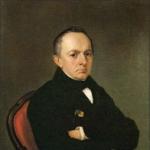0
There are many different sayings and phraseological units in the Russian language, some of them have been used since tsarist times. Today we will talk about one of these expressions, this Sherochka with a masher.
However, before continuing, I would like to recommend you a few more interesting articles about women. For example, who is Shabolda, what does Ovulyashka mean, who is called Chuchundra, which means the word Proshmandovka, etc.
So let's continue Sherochka with masherochka meaning phraseologism? This phrase comes from the French language, from the words " Cher" and "ma chere", the first term can be translated as "dear", and the second as "my dear". What does Mon Amour mean?
Sherochka with a masher- so they used to talk about women dancing in one pair, as a rule, due to the lack of gentlemen
Analogues of the expression sherochka with masherochka: a couple: a thicket and a guinea fowl, a sweet couple, two boots - a pair, Orestes and Pilades, Tamara and I walk in pairs, do not spill water.
In addition, girls who studied at educational institutions, college girls (not to be confused with prostitutes), called each other in everyday communication " ma cher". In those days, in general, the French language was held in high esteem, as English is today.
Since education in tsarist Russia was separate, the girls, in the absence of guys, learning noble dancing, depicted in turn, then a woman (slave), then a man (leader). Many noble young ladies in this case addressed each other " Cher" and "ma cher", respectively, from here the expression "Sherochka with a masher" came from.
Example:
My friends and I danced in the summer garden, on a shady alley, sherochka with a little girl, and everyone really liked it, fervent laughter was constantly heard.
Sherochka with a masher- this was the name of people close in their views who begin to see from the same point of view, usually a husband and wife or very close friends
In Odessa, they jokingly called " Politburo", and this expression was formed from two surnames known to everyone at that time - Shevardnadze and Masherov. It is clear that this phraseological unit echoed in meaning with that outdated pre-revolutionary "Sherochka and Masherochka." Odessans greatly appreciated subtle humor, although they could "solder" for this anti-Soviet.
In general, after the revolution, a lot has changed, including phraseological units, some have completely disappeared, while others have lost their former meaning. In that harsh time 20s - 30s the last century, the meaning of the phrase discussed here has changed.
Sherochka with a masher- immediately after the revolution, a similar expression denoted two bugs, usually with "cockroaches in the head", which appeared everywhere only together
It should be noted that the expression Sherochka with a masherochka applied not only to women. It can be found in the memoirs of Russian pre-revolutionary officers. The thing is that not only the young ladies were forced to dance with each other, but also the Cadets and Junkers. They were obligatorily taught ballroom dancing, and due to the lack of girls, this role was forced to be played by the gentlemen themselves. Therefore, they were also jokingly called sherochka with a masher, where the expression came from, in the Vorontsov Palace (there was Corps of Pages) or Smolny, it’s hard to say now, because a lot of time has passed since then. Unfortunately phraseologism Sherochka and masherochka Wikipedia is now missing, and this is very sad, the most detailed information is usually given there.
(advertising6)
After reading this short article, you will no longer be taken by surprise by the question, Sherochka with masherochka what does it mean?
Linguistics is boring only at first glance. When you "dive" into the depths of the history of the creation of a communication system, in other words, a language, you plunge headlong into the most interesting world of facts and legends that influenced the manner of communication, the use of terms and words. The most elementary statements that we use every day have no less historical value than the paintings on display in the Tretyakov Gallery.
In this article, we will talk about a phrase that is quietly disappearing from our language. Far from everyone uses this phraseological unit, and not many understand what it is about, but ... But it’s insanely interesting to know what is meant when the phrase “sherochka with a little girl” is used.
Phraseologism
To begin with, it is necessary to tell that this expression is nothing more than a banal phraseological unit. That is, a phrase that has a clear meaning, sometimes highly conditional, but still. The phrase is an integral expression, it cannot be used separately. Let's find out what is meant when they say "sherochka with a masher".
The meaning of phraseologism in this particular case is slightly vague. In those days when it was actively mastering the Russian language, it meant a specific action, namely, the dance of two girls in a pair. The expression was used in a slightly ironic tone.

background
In order to understand the reason for the appearance and the essence of the bantering form of use, it is necessary to look back, a hundred and fifty to two hundred years. At that time, the first educational institutions were established. Among them were purely feminine and purely masculine. Education there was received mainly by the children of wealthy gentlemen. The elite of society was brought up. It is worth recalling that before that everyone had the opportunity to study exclusively through tutors "at home".
Story
This, as you understand, is only a prehistory, indicating the time of the formation of the phrase "sherochka with masherochka". The prerequisites were created much earlier, when the fashion for France came to our country. Sounds crazy, agree. But this is exactly how society behaved when the way of life of the average French nobleman was copied by ours, we mean the Russian, Polikarp Feofanovich, for example. Children were taught to speak only French. For example, the well-known writer Pushkin A.S. he mastered the Russian language and grammar only after he wrote his first poems in French, and he was then much more than six years old. It's unfortunate, but it's a fact of our history. Obliged to honor.
An object of ridicule
So, it was then that the "sherochka with a masher" was born. It was wild for ordinary people, not burdened with worries about education, to see teenagers who came out into the "world" speaking exclusively French.
In this case, we are talking about the school of noble maidens opened in 1764, in which girls from wealthy families aged 6 to 18 studied geography and literature, the basics of household and etiquette, grammar and arithmetic. Tact was above all, the young ladies addressed each other exclusively in French (fashion, nowhere to go), using adjectives: dearest and dearest. In the park of the monastery, where the institution was located, the girls walked in pairs, sometimes dancing, addressing each other extremely politely.

Cause
It was these couples, constantly saying mon cher (dearest), cher (dear), mon cher ami (dear friend) that became those who were so actively called "sherochka with a little girl".
A little later, the phrase became a household word, denoting two girls dancing together, who for some reason did not have enough gentlemen.
What does "sherochka with a masherochka" mean?
In a given period of time, this phrase (phraseologism) is quite appropriate to use in relation to men who have one common point of view. They don't have to dance to do it. It is also appropriate to use this turnover in relation to friends or spouses, that is, people.
All of the use cases listed above have roots that appeared just in the times that we described above, but there is another use case for this phrase. Few people know about him now, but in history this fact took place. So we must know about it.
This phrase was widely used in Odessa, where Shevardnadze and Masherov, who actively collaborated with each other, were called that. It was this pair of politicians that was called "Sherochka with Masherochka." The meaning, in this context, is completely different. Speaking like this, people meant the Politburo, that is, nothing to do with dancing and girlish couples. Well, maybe the politicians had one ideology?..

Literature
You should not hush up the fact that there is a wonderful theatrical production by Nikolai Vladimirovich Kolyada "Sherochka with Masherochka". A well-known actor, screenwriter, theater director wrote a play under this name. In 1993, it was published in the Theater magazine. In 1997, the play was shown on television. Rimma Markova played the leading role at one time. The very first production was at the Sovremennik Theatre, and Liya Akhedzhakova and Liya Akhedzhakova shone in it. In the play, the author described women who were forced to do without men.
Music
The song of the same name was released by the Strelki group in 1999. The song described the friendship of two girls who did not want to quarrel for the guys. A light, not burdened with a great semantic load, the pop composition was once quite popular. In fairness, it must be said that this topic is very relevant for society. The fact is that in our time there are much more mature women than men. And before, I think, there was no big difference with the current time, one has only to remember the women's communes and the Amazons.

Similar
In addition to this phraseological unit in the Russian language, there are several more used ones, no less active. Their meaning is approximately the same, but the history of creation is different. But, nevertheless, we consider it our duty to list them:
- "pot with a lid";
- "a couple: a goose and an auk / Caesar";
- "lovebirds";
- "sweet couple".
Such verbal turns are considered synonyms because of the semantic similarity.
"W erochka with masherochka" can often be heard in our time ...
This is the name of those who are practically inseparable from each other: two girlfriends, bosom friends or even spouses who everywhere appear only together. Where did this expression come from and what does it mean?

The origin of the “sherochka and masherochka” dates back to the time when the Smolny Institute for Noble Maidens and other similar institutions operated in Russia. It is known that the rules for students of such institutions and boarding schools were quite harsh.
Girls were practically not allowed out of the educational institution, they wore modest uniform dresses and coarse linen, washed themselves with cold water and communicated with each other mainly in French or German.
In modern films about that era, you can see how Smolyanka dance at balls and enchant gentlemen with their beauty, grace and ability to keep up the conversation. In fact, men were not allowed to the balls that were held at the Smolny Institute.

In some institutes, balls were held, to which gentlemen-relatives could be invited. Some institutions allowed the presence of pupils of friendly male educational institutions at the ball.
In general, dancing with gentlemen remained an unattainable dream for many pupils until graduation. There was only one way out - to dance with each other. And since the girls called each other in the French manner “cher”, “ma chère” (“my dear, my dear”), the expression “sherochka with a little girl” appeared ...
Infa (C) internet
Sherochka with a masher (from French chére and ma chére - dear and my dear). Friends, girlfriends, frequent, appearing in public nearby, together.In the 18th and 19th centuries, when French was the language of communication among the educated public, women and girls often addressed each other chére and ma chére (dear and my dear). In addition, in the women's boarding schools where noble maidens studied, in the dance lessons, for lack of gentlemen, the girls, dancing in pairs, portrayed in turn either the leader (man) or the follower (woman), which also contributed to the appeal to each other chére and ma chére . So the expression "sherochka with a masherochka" arose
Analogues of the phraseological unit "sherochka with masherochka"
- Two of a Kind
- Do not spill water
- Sweet couple
- Tamara and I go together
- A couple: goose and guinea fowl
- Orestes and Pylades
The use of the expression "sherochka with a masher"
-
“They made a Christmas tree, a ball was arranged, where the institute girls danced not“ a little girl with a little girl, ”as was customary, but with real gentlemen”(L. Charskaya "Notes of a schoolgirl")
-
“You are a very clever gentleman, Alyosha,” she said, “but, you understand, you are still a brother, not a man. I'm with you, like at the institute, sherochka with a masherochka "(Kuprin "Junkers")
-
“In general, under the arms, like a sherochka with a little girl, we moved to the subway”(G. Shcherbakova “In search of the final man)
-
“I understand this perfectly, only you remember that you have to arrange a brilliant ball with real gentlemen, otherwise I was tired of dancing “sherochki with a masher” to death, because at our institute a friend and a friend dance”(E. Vodovozova "At the Dawn of Life")
-
Nikolai Vladimirovich Kolyada "Sherochka with a Masherochka". Play
- 1993 First staging. Entreprise of the Sovremennik Theatre, actresses Liya Akhedzhakova and Alla Pokrovskaya.
- 1997 production on All-Russian television, starring Rimma Markova.
- 2010 Saratov Drama Theater as part of the play "Playing Kolyada", director Rimma Belyakova

The expression "Sherochka with a masher" (derived from the French chere and ma chere - dear and my dear). Bosom girlfriends or friends who often go out (in public) together.
In the 18th and 19th centuries, Russian rich people actively copied the behavior of Europeans, we also note the fact that the French language was very popular among the Russian elite, boys and girls often addressed each other chere and ma chere (dear-(th) and my dear) .
"Sherochka with a masher" - phraseological unit
The considered stable phrase is a phraseological unit. The expression has a clear origin. Separate words from this phrase are not used. Let's try to answer the question of what people mean when they use the expression "sherochka with a masher". In the years when the Russian people, or rather the elite, mastered and studied the correct manners, the expression meant the dance of 2 noble maidens in a pair. Phraseologism has an ironic connotation.
Similar expressions in Russian
The phrase "Sherochka with Masherochka" has many similar expressions in Russian:
- Sweet couple;
- Two of a Kind;
- Do not spill water;
- Tamara and I go together.
The use of the expression "sherochka with a masher" in the literature
- “You are a very clever gentleman, Alyosha,” she said, “but, you understand, you are still a brother, not a man. I am with you, as in an institute, a sherochka with a little girl ”(Kuprin“ Junker ”);
- “A Christmas tree was made for them, a ball was arranged, where the institute girls did not dance “sherochka with a little girl”, as was customary, but with real gentlemen” (L. Charskaya “Notes of an Institute Girl”);
- “I understand this very well, only you remember that you have to arrange a brilliant ball with real gentlemen, otherwise I was tired of dancing “sherochki with a little girl” to death - after all, at our institute, a friend and a friend are dancing” (E. Vodovozova “On dawn of life").
- “In general, under the arms, like a sherochka with a little girl, we moved to the subway” (G. Shcherbakova “In Search of the Ultimate Man”);
Plays of the same name
Kolyada Nikolai Vladimirovich wrote the play "Sherochka with a Masherochka", which was published in 1993.
Presentation of the play on the stage of the theater "Sovremennik", actresses L. Akhedzhakova and A. Pokrovskaya. 1993
Screen version of the play on the central television, the main role was played by R. Markova. 1997
The Drama Theater in Saratov was included in the play "Playing Kolyada", which was directed by R. Belyakov. 2010




















